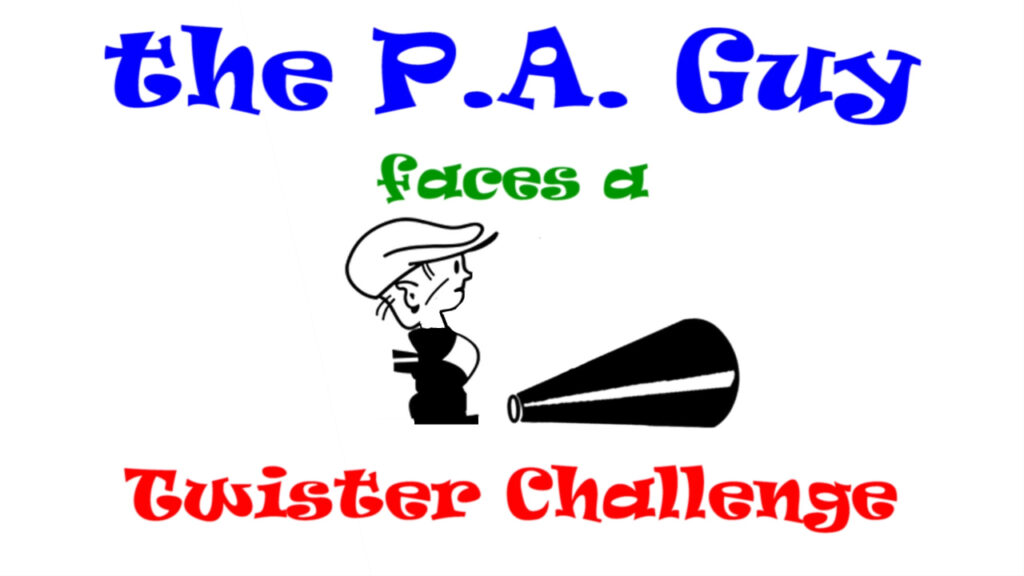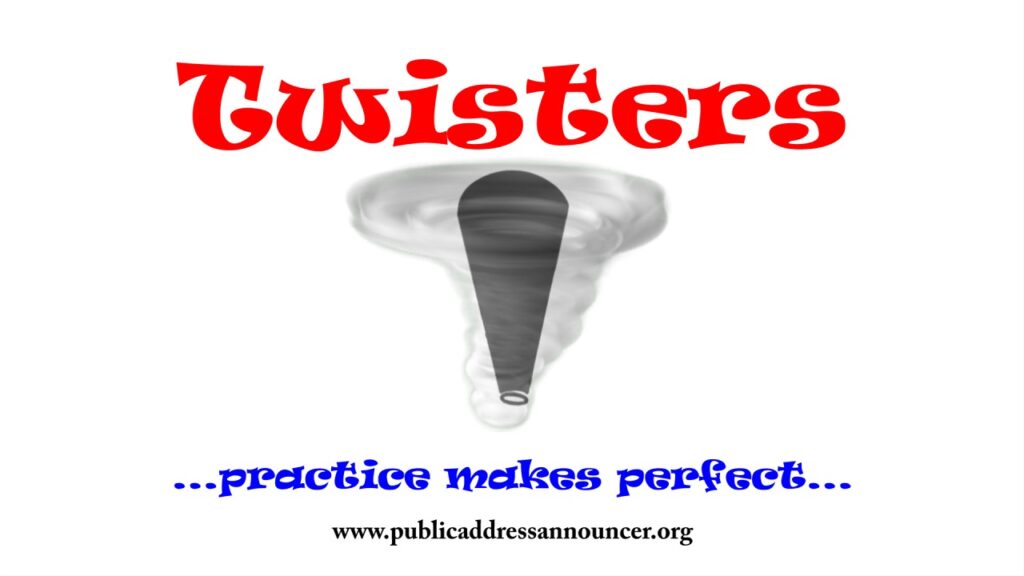Civilization’s primary identifiers…NAMES: France, Coca-Cola, Sony, Apple, Tom Cruise, Aztecs, Jupiter. Our singular memories are pegged with these unique tags for all things we happen to know in the universe. For me, names seem to land in the 80/20 model of my announcing world. As a PA announcer, I, ostensibly, spend 80% of my time and effort considering, reviewing, associating numbers to, rehearsing and speaking names: people, schools, organizations, sponsors, etc. Where’s the accent? Is it said like “J” or “Y”? Is that a silent “A”? Wow, 5 syllables. This language. That language. For me, figuring out the names fascinates me. We greet the walks of life through names: the linebacker from Uzbekistan or the shooting guard from France. Sometimes I see a name and hometown, from say Estonia, and wonder, “How did they find her?” Absolutely, I love the sports and announcers get the best seats in the house but, names…now, names stir up the soup of public speaking nicely.
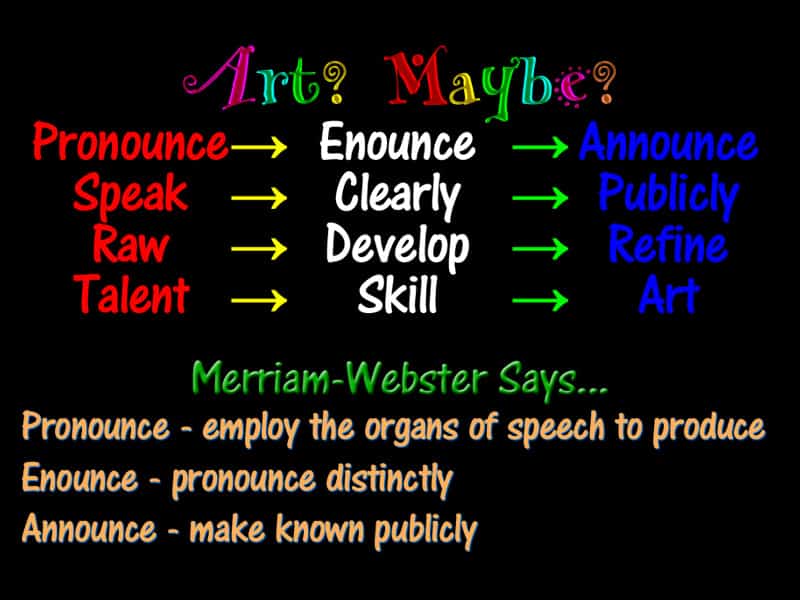
Is this public address announcing business potentially an art? Conveying all that information to the hordes so smooth and effortless just might be. Plenty of arguments litter the internet world that public speaking is an art. Is this not, essentially, what PA announcers do? In contrast to public speakers, we get a new set of names every game, different set of rules for each sport, varying hand signals to memorize from officials and a fresh set of circumstances in every contest. Plus, we read speeches, too. What do you think opening statements and copy are? On top of it all, quite a few announcers are managing music, sound boards and a dozen other duties all at once in fluid environments. When they pull it all off seamlessly and get all those complex names dancing in the air, I hypothesize it’s an art.
TANGENT RETURN: Agh!…sounding arrogant…so, back to names.

A person’s name seemingly wraps around everything…or it sure feels that way. It identifies an individual to the world. They introduce themselves with it. People refer to them by it. Names evoke images, feelings, opinions, memories and whatnot. Just say “Trump” in a crowd then, watch for unpredictable weather patterns. Names are powerful. They determine which letters in the mailbox are theirs by reading the address labels. Their last name carries their family’s identity and legacy from prior generations throughout their own life and into the next generation via their children. Many women value their family names so much so that they keep it after getting married. Some detest their names so badly they legally change it to something they can take pride in. Simply, their names are a principal way they identify themselves as individual in the world. And so, it goes without saying folks’ sensitivity level regarding the correct pronunciation of their names can be pretty darn high.
In fact, name mispronunciation has triggered a whole movement at the school level called My Name, My Identity. Two university professors in California penned a study back in 2012, Teachers, please learn our names!: racial micro-aggressions and the K-12 classroom , which went so far as to indicate mispronunciations could be construed as micro-aggressions towards people (particularly, children) of varying backgrounds. In the study, some children claimed to have developed anxiety, shame and/or resentment when hearing their name spoken incorrectly over and over again especially in front of others.
I’ll make the leap and extend mispronunciation frustration into adulthood. Many a grown-up I’ve known has wasted no time admonishing a speaker who publicly got their name wrong by publicly correcting them on the spot. Picture a college senior at the free-throw line, game on the line, a pin drop audible from tacit expectation then, her name gets announced wrong. Does it affect her concentration, her nerves, her shot?…maybe... It’s emotional and at social, cultural and political levels. For those whose names get regularly butchered, you can catch them subtly wince through a sheepish grin when it gets screwed up…again. Make no mistake, articulating names to the satisfaction of the owner(s) in any context is a big deal.
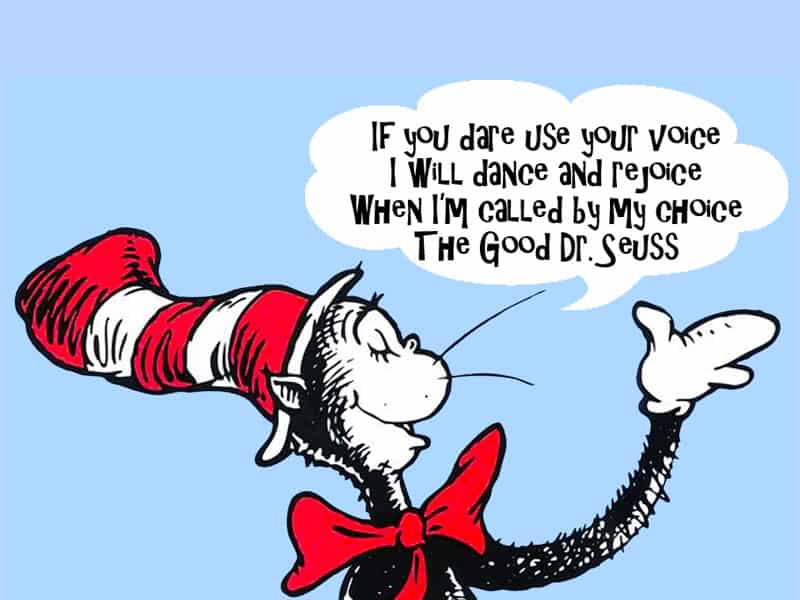
Waxing poetic by channeling Dr. Suess for a moment:
Announcers announce.
Announcers pronounce while they announce.
When announcers mispronounce while they announce,
Some mispronounced go to the announcer to pounce.
While they denounce the mispronouncing,
The announcer kindly asks the denouncing
How to pronounce AND enounce
So they can stop misannouncing
Then the announcer will not receive
Such a dreadful bad pouncing.
Funny but more true than not. What’s even more funny is 99% of people pronounce Dr. Seuss incorrect. Theodor Geisel, who WAS Dr. Seuss, pronounced it SOICE like voice. Well, how about that?! Glad he wasn’t on the basketball team, he might have been pretty upset with us ALL by now.

Back when volunteering in youth sports, I would announce to the crowd of parents to come correct me if I accidentally announced their child’s name wrong. It helped and on occasion, a parent would swing by and help me out. Other parents got cranky anyway. However, it made a difference. Children can be so cruel. A screwed up name easily gets repeated and taunted derisively in the dugout. Did the kid remember his big play or how the kids picked on him because his name was pronounced funny by the dumb PA announcer? Plus, it’s so easy to remember the bad stuff. Frankly, some bad situations tend to be remembered throughout life. A mispronounced name in an unexpected public setting could definitely be a candidate for memory wished forgotten.
High School and higher, the name becomes a bigger deal for announcing. If sloppy on names, a likely outcome exists no one will say anything; however, much like attending college, screwing up constantly will not get you into trouble, just not invited back. Administrators, coaches, parents and fans, big surprise, ardently desire their teams’ names enunciated properly, the opponents not so much…LOL. Reality is the announcer is on the hook for both.
Luck Favors the Prepared. A phrase I staunchly stand by. To get the rosters ahead of time from the Sports Information Director with, hopefully, a pronunciation guide soooo takes the pressure off an announcer. Having it all typed up, taking a bit of time to rehearse names (hometowns too…yappers, some get quite discontented when the hometown is announced wrong) and giving the big eye to those names you’re confident you might stumble on are all keys to getting it right game day.
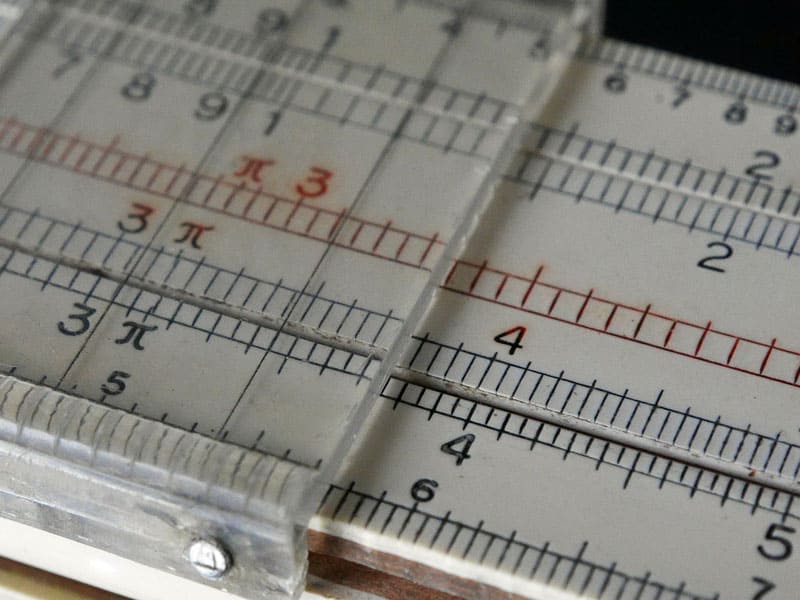
Sure, you don’t always get rosters beforehand. High Schools don’t always have their rosters correct on MaxPreps or the school’s webpage. I’ve even been handed a roster on game day by the AD and told they changed a bunch of jerseys so some of the numbers are wrong. Ugh!!! The best defense? Get to the game plenty early to talk to the coaches or team managers then, do the best you can. I am not a fan of “on the fly” rosters, especially in football when it seems there’s a zillion kids on the list but, you get what you get. You have to do the game somehow so, you deal with it and forge your way through; although, it might be like deciding to do my taxes with a slide-rule. When it’s a perfect world, send me an email to let me know. Until then, I’m prepared to roll up my sleeves for anything.
NAME CHECK: This is the term I use myself for running through the roster with a coach, manager, assistant, etc. prior to the game so, they can alert me to any pronunciations I need to document. I do it every single time without fail. The challenging names I may even repeat one extra time just so the team rep hears me and either nods or corrects. If it is a regular home team I have announced several times during the season, I will not name check unless I find an exception or have a question. The opponents? Every time no matter what. It’s just that important in my opinion. If I can’t announce the names properly…even bigger…If I can’t make the earnest effort to attain the needed information to announce the names properly, what value do I actually bring? Yards and Baskets? It’s not enough. Every game or event I push to do better. There’s always room to improve. I want 100% perfect out of myself. If I expect any less, I will get even less than that.

We all mess up names (Actually, I botch up more than just that but, that’s an entire story on its own). It happens with all kinds of names. Believe me, there are plenty of names to foul up. My most, recent favorite, which has been mispronounced by television personality after television personality, belongs to the Irish actress named Saoirse Ronan. Click Here for a humorous short video discussing her name. Hilariously, she’s not even sure she’s saying it right. This a perfect example of what shows up on an unfamiliar roster that triggers me to utter sotto voce, “Eh?“. Frankly, I admire the masters of hockey names: Reijo Ruotsalaine, Gene Achtymichuk, Jaroslav Svejkovsky, etc. Are you kiddin’ me?! Masters, I tell you!!! The point is no one knows the names that will show up on a roster. If you can get it ahead of time, great! If it has a pronunciation guide with it, triple awesome!!! If not, the name check rules the roost. What’s paramount is making the effort get it 100% down for the sake of everyone involved.
At the collegiate level, rosters are usually accurate on the athletics sites or everything is provided ahead like at the professional level. Some colleges even have pronunciations out there written out or, if you can believe it, audibly (How cool is that!). UCLA is a good example. Clink this Link to their volleyball roster. When you click on the little ear next the player’s name, you can hear the person themselves pronounce the name. Wow! What a help that is! Amazing!! They are using an app developed by a company called The Name Engine whose purpose in life is documenting and aiding with the pronunciation of sports names. Actually, there are quite a few sites for pronouncing names but, no matter what I hear online, I lean back on my name check.
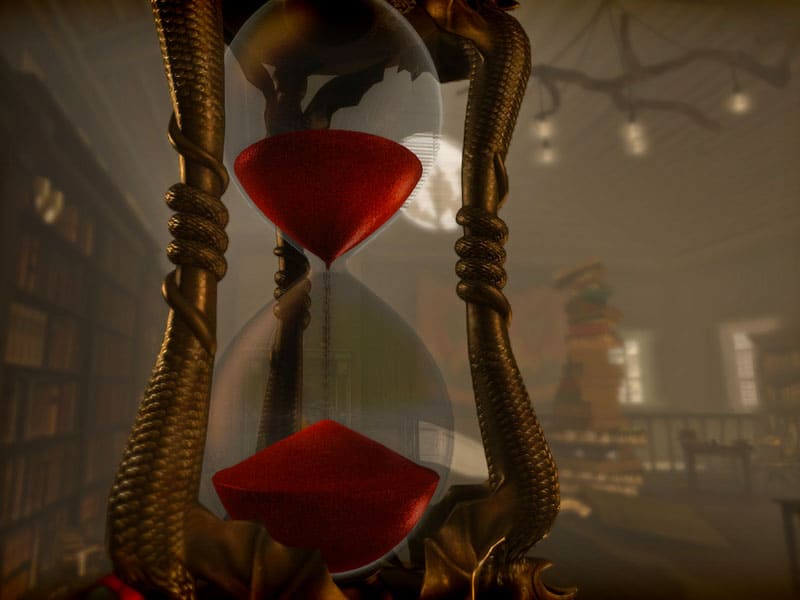
This brings me to pronunciation shorthand…not exactly shorthand but can’t think of a better term. I don’t know about anyone else but, the idea of learning how to use all those diacritical marks the dictionary employs repulses me. From the breve to the umlaut, seems more marks exist than there are grains of sand in the Wicked Witch of West’s evil hourglass…“that’s right, my pretty…” Am I melting yet?
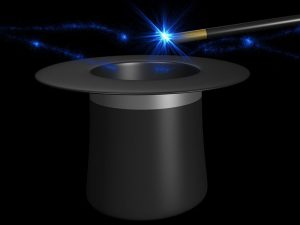
Each announcer, I know, uses what works for them. Some use accents and other marks. I have gotten real comfortable with caps and small caps so I can distinguish emphasized syllables . It’s just upper case in 2 different font sizes. Also, I double up vowels to tell me the sound is long not short. As an example, take the name Davasyia. On my roster sheet, I would put duh-VAA-zha. I would hand write it pretty much the same way. Now, I know 2 things: how to pronounce it and to be ready for it. For me, I like to earmark names that concern me. It’s not a perfect method but, it works for me. I can write it quick and, I have programmed my own brain on how to interpret my shorthand from the emphasis points to the AA representing the long A sound. Believe me, I will use any machination in my magic hat to help me get every single name right.
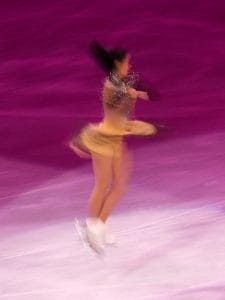
Rehearsal and practice…even a little bit…if afforded…goes a long way. If all a person receives, say at a high school volleyball match, is 5 minutes to read through the names and test the tough ones, the 5 minutes pays off every time. Of course, Armenian and Polynesian names, to name two, would be better served with more rehearsal. My American tongue can quickly knot up so, I do hunger for practice. Years of routine practice turned a figure skater’s 2-minute performance into a gold medal. Remember that: years, 2 minutes, gold…in that order. Whenever a rehearsal can be had, take it.
NOTE: I, also, do thing I call voice warming before games but, that will be a different article where I’ll explore managing the voice.
What about coaches names? Name check with the rest. It all matters because it’s about respect. I just had a head coach of a women’s basketball team whose name was Danelle. Doesn’t seem tricky until you look close and realize it’s not Danielle but Danelle. You must be careful. Names come in all shapes, sizes and forms and respect underpins getting it right. At first, I thought it was type-o on the school website but, nope! Danelle, DAH-NELL, was her name. Got it! Confirmed it with her in the name check and I was off to the races.
And school/mascot names? Oh, my. Is it State, Cal State, Los Angeles State, Cal State LA, Cal State Los Angeles, LA, some, all or something else? Terrapins, Terps, both, neither? Agh. I’m out of breath and it’s good thing I took combinatorics as a senior in college. And how many schools/mascots are just plain difficult to pronounce? Le Lycee Frances , LAY lee-SAY fran-SAY, is a small private school in Los Angeles. Ouachita Baptist University in Arkansas is pronounced WAH-SHI-tah, similar to Wichita. How about Sault College, pronounced SOO, nestled way up in Canada. Mascots? Go for the Chanticleers (SHAGHN-tih-kleers) of Coastal Carolina. Unless I know for certain, I ask what my options are to the nearest administrator. Getting the school/mascot name wrong is sacrilege. I was doing a game for El Segundo High way back when and pronounced it EHL seh-GUUN-doh in my ideal Spanish. Oops! Rapid fire flew from the stands, “EHL suh-GUHN-doh!!!” My face painted red PDQ so, ever since, I make sure I am sure by asking.
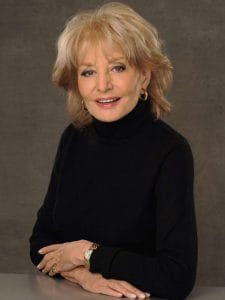
This brings me to the pronouncing itself. If you have troubles with certain consonants like me (“TH” is the burden I bear), watch for names with those letter combinations and use those monikers as opportunities to work on your speech impediment if you so have one. There are plenty of notable folks out there with speech troubles: Barbara Walters comes to mind. For others, they run out of breath or maybe struggle with the letter S. Pronouncing is an unappreciated mechanic. We never consider its complexity until we get compelled to speak publicly and, suddenly, feel we must get everything perfect. It’s REAL pressure for most people.
The crux? All names are delicate and divine to those they belong to: people, schools, organizations. Just ask an associate how Nordstrom’s is said. You’ll discover with haste it is NOT Nordstrom’s but just Nordstrom. My name is holy to me, too. Certainly for an everyday, English-fluent American, Matt Wallace is not hard to pronounce. But many folks from other nations and cultures would find my name very difficult to say. Truth is I don’t like my name mispronounced anymore than the next person. When I hear my name wrong, I get a mild and very peculiar pang sort of akin to getting my belly-button gently poked. I prefer it does not happen and sorry it ever does. Names are everything to people and as an announcer, I want to get them all right 100% of the time, not 99%, 100%. Whether in front of 4 folks and a dog or thousands upon thousands, I want to say those names correct. It just makes the whole scene A) more enjoyable and B) downright more professional and polished. Plus, I consider it professional deference to those I have the privilege to announce to do my utmost to get their names articulated in the manner they want them spoken. Everyone has the right to want their name enunciated the way THEY want it said.
For those that read this, I am curious to know what the hardest names you’ve encountered along with their associated proper pronunciations. Feel free to comment. Learning more IS the job.
About Matthew C Wallace
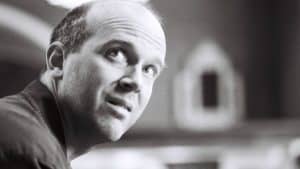
Matthew C. Wallace is the owner of publicaddressannouncer.org. He is a public address announcer, writer, webmaster, historian, author as well as a former executive and musician. He lives in Los Angeles with his wife and children.
More Announcer Reading
What Music To Play? Ask Them.
What Music To Play? Ask Them. By Matthew C Wallace Music Moves the Needle If…
Twisters – Sq – Challenge – Dave Kammerman
Sq Challenge Starring Tom Winiecki as The PA Guy vs. Our Challenger Professional Public Address…
Twisters – Sc
Sc Starring Tom Winiecki as The PA Guy https://youtu.be/ZOAmbW74Ldc About Tom Winiecki Tom Winiecki is…


